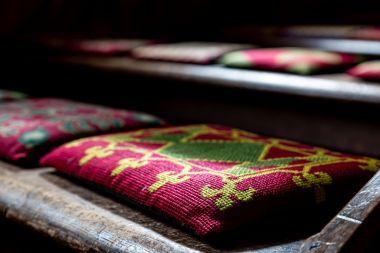Church of England delays action on safeguarding failures

Despite spending over £1m on two expert reviews into their safeguarding practices, it seems the Church of England still believes that the bishops know best.
The first review sought to discover why attempts to set up an Independent Safeguarding Board (ISB) went so catastrophically wrong. Sarah Wilkinson, a senior barrister, described "a complex matrix of reasons" behind the sacking of the ISB members, but laid the responsibility for the "structural reasons" firmly at the feet of the Archbishops' Council.
Their failure to set up an appropriate process then contributed to the breakdown in the relationship between themselves and the ISB members. Their actions showed little understanding of trauma-informed working practices and scarce regard for the wellbeing of survivors.
This weekend, Professor Alexis Jay CBE, the author of the second review, which set out a path to a safeguarding structure that would be truly independent, explained why such structures were needed. Speaking to General Synod this weekend, she said, "Safeguarding in the Church today, falls below the standards expected in secular organisations, which are required to follow statutory guidance."
The lead bishop for safeguarding, Rt Rev Joanne Grenfell, accepted this.
"We have failed – over many years, decades, centuries – to welcome and protect people who needed the Church," she said.
"We have turned people away from the Gospel of the love and hope we have in Christ and become those of whom Jesus said should have a millstone around our necks."
And yet, many of the speeches and every vote, showed there was a reluctance to turn this handwringing into action.
The Archbishop of Canterbury, Justin Welby, spoke of the difference between blame, responsibility and accountability – but refused to accept responsibility for anything more than "being in too much of a hurry".
This angered Rev Robert Thompson, who told Synod, "Apology after apology after another bloody apology will not do," before calling on Archbishop Welby and William Nye, secretary-general of the Archbishops' Council, to "embody" the apology and resign.
But the need to be less rushed became the excuse needed by bishops and clergy to continually vote against every amendment which called for action.
Martin Sewell, a lay member of General Synod who has been working with survivors for many years, wrote on X, of the paradox "that so many bishops find it impossible to conceive of safeguarding improving if they give up power and control".
"Power and control are, of course, the primary features of all abuse," he said.
Later, he spoke to Christian Today, saying, "I invited Synod to hold the leadership formally accountable for the errors disclosed by Dr Wilkinson but Synod bottled out."
Asked why he thought this was, he pointed back to the bishops' desire to maintain control,
"We speak of putting victims first, yet the views of our diocesan safeguarding advisers, who would face structural reordering [if an independent system was introduced] seem to have been made paramount because their views keep bishops in the game. There was little empathy for what the victims were making of all that was happening."
Bishop Joanne finished her opening speech by saying, "This is urgent work. It is not straightforward. But it deserves thorough, balanced, courageous, and open-hearted consideration, to help us together to reach a place where the Church can be both safe and trusted."
But it seems that having spent a fortune on expert advice that was clear the Church could not be trusted, General Synod would prefer a long drawn-out process relying on "deep engagement" by "an internal team".
It seems that the Church of England is determined to fiddle while Canterbury burns.











